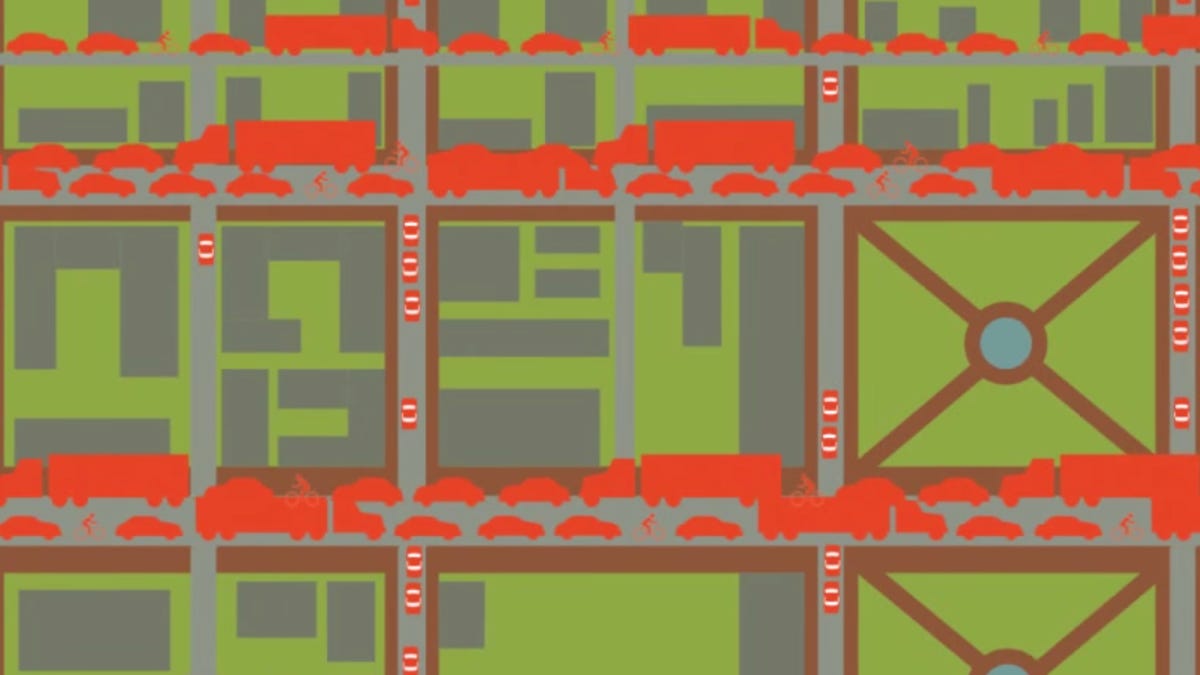'Smart City' project to steer US toward better roadways
US transportation chief offers up a $50 million prize for the city that can best lead the US out of its "20th century thinking."

The elimination of gridlock sounds like a pipe dream, but the US Department of Transportation thinks it can be done -- and relatively soon, at that.
If the US is going to embrace a 21st century transportation system, one that includes things like autonomous vehicles, connected cars and data analytics, it needs to completely rethink its approach. And cities can help guide the way.
That's the major line of thinking behind the Smart City Challenge, which the US Department of Transportation announced Monday in a conference call with Secretary of Transportation Anthony Foxx.
"Our national vision is still very much constrained by 20th century thinking about the integration of technology," Foxx said. "The best lab we have for emerging technology is where that technology is most needed -- our communities."
Mid-sized cities, defined by the DOT as having a population between 200,000 and 850,000 people, can submit descriptions for their vision of a "Smart City" that incorporates technology to solve future mobility concerns. Proposals need to be submitted by February 4, and after narrowing the field down to five finalists, the DOT will choose a winner in June.
These cities are being targeted in particular because their transportation infrastructure is expected to be pushed to the limits in the next few decades due to predicted population increases. Over the next 30 years, America's population will grow by 70 million individuals, according to the DOT's "Beyond Traffic" report, most of whom will end up in urban areas like the ones included in this challenge. If the country waits until then to come up with a solution, it's already too late.
The winning city will receive up to $50 million, including $10 million from Paul Allen's investment company, Vulcan, to help achieve its transportation goals. Those goals are loosely defined and left largely to the contestants to flesh out. They could include solutions for gridlock, integration of autonomous cars or utilizing vehicle-to-vehicle communications. The sky is the limit here, as long as cities focus on promoting safety and protecting the environment.
"The 21st century will be dominated by urbanization," Foxx said. "The entire world is now having a conversation about smart cities and what they should look like. Now, it's time for them to show us." The transportation chief will host a webcast and a forum in the coming weeks, where he will discuss additional details about the opportunity and answer any questions the public might have.

